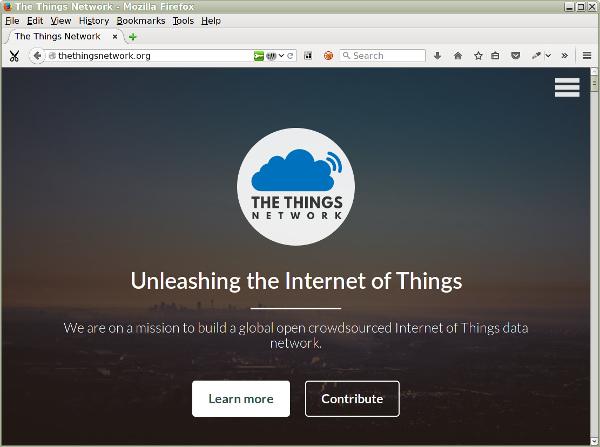Last week, The Things Network — 010 was launched. This is an open LoRa network for the Internet of Things (IoT) in Rotterdam. It took only six weeks to get commitment from the parties involved for the purchase and placement of two dozen LoRaWAN gateways. More will follow after the Kickstarter project for The Things Network makes access points based on open hardware available at very low cost.
The network provides free access for IoT devices, to communicate with internet applications and each other. Since LoRa networks can operate over longer distances but only for slow data transfer rates, they are typically used by tiny, battery-operated systems. This allows you to build sensor networks based on low-power devices that periodically send small amounts of data. The network can be used to connect boats, cars, lamp posts, dumpsters, and road and traffic systems, for example, allowing these to send information (i.e. measurements) and receive commands.
Gateways
The Rotterdam Things Network is an initiative of private companies — large, small and start-up — local government, and educational institutes. It took only six weeks to get commitments from these organisations and even a handful of one-man companies for the purchase and placement of two dozen LoRaWAN gateways.
Each gateway costs about 1500 euro and — depending on its surroundings — can cover a radius of maximal fifteen kilometres in line of sight and two kilometres in dense urban areas. Currently, ten gateways have been installed in the Rotterdam city and harbour area.
According to Leon Gommans, a leading figure in the development of open data in both the city and the port of Rotterdam, and co-owner of PlaySpace and Teqplay, this is only the first phase. The Kickstarter project for The Things Network will make access points based on open hardware available at a price of 200 euro. That's only one fifth of any currently available LoRaWAN gateway.
The goal of 150,000 euro was met in less than ten days. One month after the start of the project, almost 300,000 was pledged by over 900 backers.

Business cases
Although a lot of IoT applications appear useless or farfetched (IoT parody here), Gommans sees specific value for these tiny devices in the Port of Rotterdam. A lot of things in the port area are visually inspected. Having someone in a car to drive up to these points is a very expensive thing to do. Replacing these inspections with battery-powered LoRa sensors would result in huge savings.
Gommans mentioned the detection of sand lying on the road, water levels, whether sign posts are still standing, and whether gates are opened or closed, as examples of useful and money-saving applications. A sensor costs only a few bucks. Other applications can be found in preventive and predictive maintenance. Generally, labour-intensive service and maintenance processes are good places to look for IoT business cases.
Geo-localisation
Another application that we are currently experimenting with is geo-localisation in recreational boating. Larger vessels are already being tracked through their AIS transponders, which let the port's Vessel Traffic Service (VTS) identify and locate ships. We now aim to add smaller vessels to our AIS application infrastructure by using LoRaWAN devices. The first pilot is planned to start in April.
Last but not least, the cooperation on the Rotterdam LoRa network also revitalised the relationship between civil society, educational institutes and industry on the one side and the City of Rotterdam on the other, after their collaborative open data project lost its momentum.

